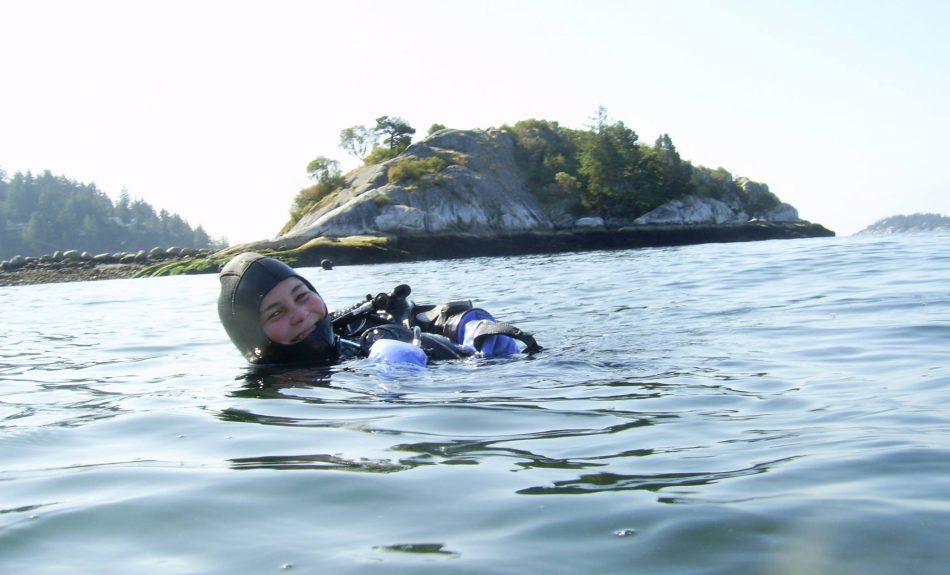Summer is on its way out in Vancouver but despite common misconceptions, that means it is the best time to learn to scuba dive.

1. Proximity: We are extremely fortunate on Canada’s West Coast when it comes to outdoor recreation, as you probably well know. All year round we have a plethora of outdoor activities available to us. However, some of them are getting a little crowded like hiking Joffre Lake in the summer or skiing the North Shore Mountains during a winter weekend. One way to really get away from it all without having to travel far from the city of Vancouver is to get in or on the water. Years spent sailing on English Bay taught me that you can really escape even in the middle of a metropolis. Now, we aren’t quite as lucky as they are in Seattle with dive sites pretty much on the shores of the city itself, but we definitely don’t have to go far. Amazing and accessible dive sites dot Howe Sound and Indian Arm and many are shore dives with parking nearby! The most popular dive site, Whytecliff Park, is right around the corner from Horseshoe Bay ferry terminal in West Vancouver. Other sites in the are include Caulfield Cove, Lighthouse Park, Copper Cove – all within a 40 minute drive from downtown in light-moderate traffic. You don’t need to go as far as you do for skiing or many trails or climbs in the region. In the winter we aren’t contending with many beach-goers so parking is plentiful.
2. Water clarity: Many mistakenly believe that BC just has murky, dark water. This is by no means a hard and fast rule. While it can be true due to Fraser River run-off & plankton blooms during the long, warm days of late spring through mid-summer, by fall and winter it is not unusual for us to enjoy 30-60 feet (9-18 metres) of visibility even near Vancouver. Get away to the Island or further up the Coast and it is not unusual to experience water clarity rivalling the clearest of Caribbean dives: up to and exceeding 100 feet (30m). BC’s characteristic emerald green sea can even take on a turquoise glimmer at this time of year.
3. No lift fees! Scuba is often thought of as an expensive sport. However, the cost per hour to learn is very inexpensive and once you’ve invested in a decent set of gear (not much more than a good set of ski equipment) the only thing left to pay for is air fills. Discounted fill cards and annual fill passes can make it quite affordable. There are no lift fees to pay. The ocean is all around us.
4. Night dives! If you take your Open Water course and love diving as much as we think you will you can move on to your Advanced Open Water course and learn a few more skills, including Night Diving. Given our long hours of darkness in the winter, you may as well slip beneath the sea and see the creatures that are more active at night. There is something especially tranquil about night dives.